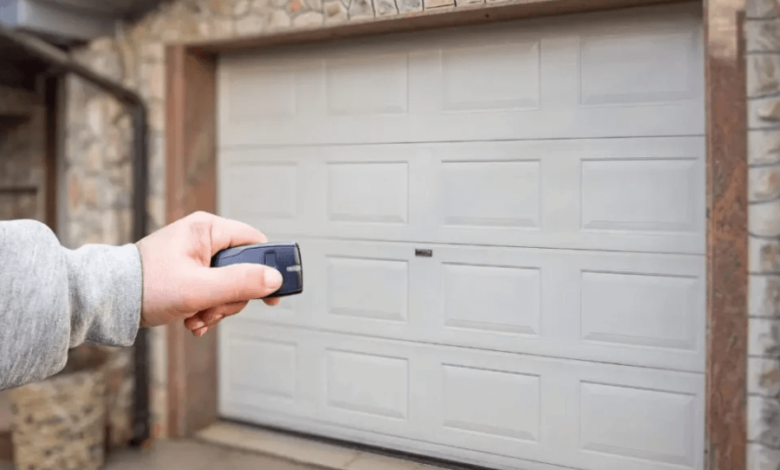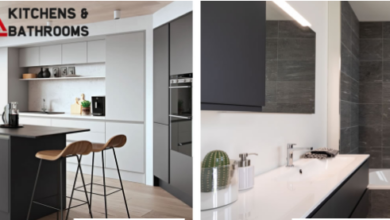What’s The Difference Between Residential And Commercial Garage Doors In Greenwood?

Residential garage doors are typically smaller, quieter, and designed with home aesthetics and insulation in mind. In contrast, commercial garage doors are larger, more durable, and built to handle heavy use, making reliable garage door repair in Greenwood – Select Garage Doors – essential for maintenance. Understanding these differences helps homeowners and business owners choose the right door for their specific needs.
The Core Differences
Residential doors are focused on convenience, fashion, and light-duty use, whereas commercial doors are designed for heavy traffic and heavier-duty vehicles. They differ in terms of size, material, and mechanism: commercial doors employ reinforced, high-cycle components, whereas residential doors are focused on curb appeal and low security.
1. Purpose
The residential garage doors are built to fit the lifestyle of the person who operates with a low impact and making it easy to maintain the garage door, and can be adapted to fit individual storage and individual vehicles. Warehouse and business hangar doors also adjust to warehouses and factories, but are heavy-duty, able to adjust to larger vehicles, such as delivery trucks or forklifts.
It requires heavy-duty performance and durability, as the doors are often opened many hundreds of times per day in a heavy-use environment. The design of the door to fit the environment creates fewer maintenance issues.
2. Size
Residential doors are usually 7–8 feet high and 8–16 feet wide, enough for one or two cars. Business doors can be up to 24 feet high and 32 feet wide, for big trucks and heavy machinery. Business installations can require extra structural support because of the larger size and weight, so installation is more complicated than with residential installations.
3. Materials
Residential doors are made out of wood, aluminum, or glass in order to match the home exterior designs. The commercial doors are centered on robustness and stamina and use tough and durable materials such as galvanized steel or fiberglass. The industrial thermal is needed to keep up the same internal temperatures and conserve energy.
4. Operation
House doors tend to be fitted with a silent belt-drive motor and routine torsion springs which allow them to be easily operated and flow. Commercial doors require beefed-up motors, high-cycle springs, and high security components so they not only can withstand unlimited service, but also massive loading.
5. Aesthetics
Residential garage doors have many styles, finishes, and window options to make a great curb appeal. Commercial doors prioritize functionality and strength over looks.
See also:; What Are The Benefits Of Professional Plumbing Installation?
Why Function Dictates Form
Garage doors are engineered for their specific purpose, with residential doors engineered for light use and aesthetics and commercial doors for heavy usage and longevity. Commercial doors use sturdy materials and superior safety, while residential doors prioritize design and simple security. The proper selection avoids wear and tear, expensive repairs, and security breaches.
Daily Use
Home garage doors are made for light, infrequent use, opening a few times each day. They have smaller motors and standard springs for 10,000 to 15,000 cycles.
On the other hand, commercial garage doors are subjected to brutal, high-frequency use–opening 50+ times per day. To manage this, they use industrial-grade openers and high-cycle springs rated for 25,000+ cycles.
Commercial use, on the other hand, speeds up wear and tear, requiring heavy-duty materials and more regular maintenance–usually quarterly. Residential doors, with their lighter usage, need annual attention if they’re to keep working.
Choosing a door that’s specifically designed for its expected function is the secret to avoiding headaches and costly overhauls.
Environment
Domestic garage doors for suburban homes offer choices with materials like wood, fiberglass, and steel to match house design.
Commercial doors, on the other hand, put function before form using rugged materials such as galvanized steel or aluminum to endure the rigors of an industrial setting.
Insulation requirements are not the same. Residential doors are available to match personal tastes, while insulated commercial doors can be designed to reduce energy costs by as much as 20%, important in temperature-controlled facilities.
Weather and environmental exposure result in other factors in material selection that ensure durability.
Security
There are very good locking systems for the commercial garage doors, tough panels, and a strict safety code to protect the valuable inventory.
Home doors, still strong, protect cars and possessions, sometimes prioritizing security and beauty. The split in priorities mirrors the different threats to residences versus commercial operations.
Unseen Engineering Nuances
Residential and commercial garage doors differ in terms of durability, performance, and safety factors as well. Residential doors use lighter tracks and springs, while commercial doors require high-cycle springs and reinforced components. Both require regular maintenance to provide safe, reliable operation.
Spring Systems
Garage door spring systems play a vital role in counterbalancing the door. Home doors typically employ 10,000-cycle torsion springs that should survive 7–10 years on average. Commercial doors make use of high-cycle torsion springs with over 25,000 cycles, supporting the frequent openings within warehouses or shipping facilities.
Residential torsion springs are less strong for lighter doors of 150–300 lbs. Commercial springs are much stronger, holding 500–1,000 lb or heavier doors. Commercial systems need to be tuned quarter by quarter, while residential systems need only periodic maintenance. Both of them need regular inspections because a defective spring can create malfunctions or safety problems.
Track Gauge
The track gauge also influences a door’s functionality and weight capacity. For residential doors, lighter tracks are used for doors not exceeding 300 lbs. Commercial doors require thicker, strengthened tracks to hold bigger doors, even reaching heights of more than 14 feet and widths of up to 24 feet.
Heavier gauges in commercial applications ensure durability in heavy-use facilities, and residential tracks are sufficient for typical household use. Insulation can also be included in residential doors to lower heating and cooling bills up to 20%. Track gauge makes long-term durability more significant when combined with industrial-grade openers in commercial doors.
Safety Sensors
Safety sensors are a requirement on home garage doors for the safety of families and pets. Commercial doors can have advanced sensors that comply with industrial safety standards and protect workers and equipment. Either way, operational sensors lower the chances of an accident, and proper maintenance guarantees continued functionality.
Customization and Appearance
There are huge distinctions between residential and commercial garage doors with regard to both functionality and appearance. A residential garage door is basically an aesthetic concern, but a commercial one concentrates on functionality.
Residential Focus
The residential garage doors come in flush panels, raised panels, or carriage-based doors, adding curb appeal to a home. Their color and material can be varied; they can be gray, red, blue, or white; made of wood, steel, aluminum, or fiberglass. Wood can provide a classic look but requires increased maintenance compared to steel, which is also durable and with low maintenance. Glass panels provide a contemporary environment, and the sun floods into the room.
Insulated doors also make homeowners save on their utility bills by up to 20% mainly during severe weather conditions. Home doors are also available in special architectural designs or for taller cars, like RVs, which stand up to 12 feet tall.
Commercial Focus
The commercial garage doors are made in a way that they have to be used and managed so that they fulfill the business demands. The major functions are: use of heavy-duty materials, i.e., galvanized steel, heavy-duty locks, oversized sizes to fit in big cars or equipment, and lastly, insulation to control the temperature of a warehouse or a storage unit.
Safety regulations must be met by commercial installations, and security functions like motion sensors or remote control are most conveniently maximized by automation when the installations are busy.
Comparing Residential and Commercial Garage Doors in Greenwood
Residential garage doors and commercial garage doors are designed to meet a variety of requirements based on use and application. Residential doors lie on the beauty and integration within the home, whereas the commercial ones are made with an eye on the longevity of use, functioning in working conditions, and durability. Insulation, materials, and design vary to provide different advantages to the users applicable in different settings.
Their preference for the door will be settled on the basis of the daily usage, security complications, and value. Decorative semi-durable doors could be used in the case of residential properties, but more often than not, business properties will need industrial-strength doors that are capable of bearing this level of traffic.
Being aware of these differences will give homeowners and business owners the details they require to make an educated choice. At Greenwood, the know-how needed to enable one to offer a garage door that will serve the needs including performance and looks is locally available by the local expert who can impart the necessary expert advice needed to avail the expert advice needed to provide the customer a door that will last decades without complaint.
Select Garage Doors – Greenwood
6801 S Emporia St #206, Greenwood Village, CO 80112
Phone: +13032683659






